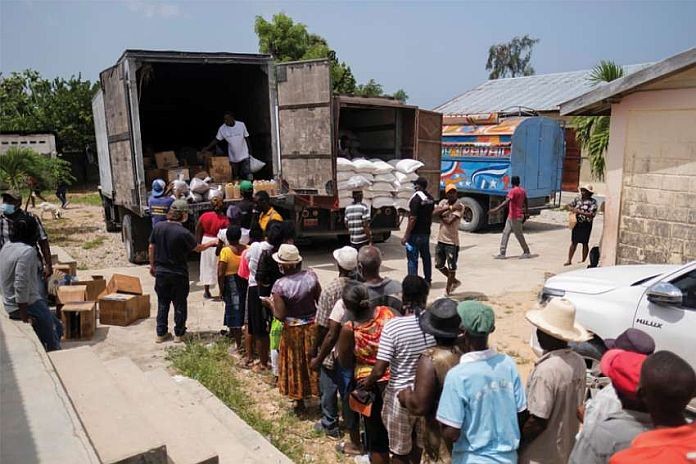By Michael Swan
TORONTO, Canada (The Catholic Register) – Since the August 14 earthquake in Haiti killed 2,200, injured 12,250, destroyed or damaged 130,000 houses and left 650,000 hungry, homeless and needing aid, so much has happened in the world it’s safe to say the world’s attention has been anywhere but Haiti.
The situation in the poorest country in the Western hemisphere has been overshadowed by so many other happenings in the world – Iqaluit’s water system has been compromised, the Taliban has retaken Afghanistan, China has flown military sorties over Taiwan, Hurricane Ida slammed into New Orleans, a volcano on the Spanish island of La Palma is still spewing ash and molten lava and Facebook was down for six hours.
But thanks to nearly $400,000 Development and Peace – Caritas Canada has raised on its website and through Canada Helps, Haitians are making their lives a little better day by day in the rural communities of Les Cayes, Maniche, St. Louis du Sud and Cavaillon.
Development and Peace’s Haiti plans are “ever-evolving,” said the Catholic development agency’s program officer for Latin America Mary Durran.
“Our post-earthquake response is able to carry out operations quite satisfactorily, despite the current situation,” Durran told The Catholic Register.
That current situation includes political uncertainty in the wake of president Jovenal Moise’s July 7 assassination. There are also criminal gangs who have taken control of important roads that connect parts of the mountainous, island country to each other.
One of those gangs is responsible for the abduction of 17 missionaries from Christian Aid Ministries, including a Canadian, over the October 16-17 weekend.
Politics in Haiti was already a mess before Moise was killed. The assasination “compounded the political crisis, and the earthquake was the final straw,” Durran said. “Despite all that, our partners are still working and advancing with their work.”
Gang control of the road from Jeremie to Port au Prince has been a major obstacle, said Chalice’s senior international manager MaryAnne McKinnon.
“The highway from Port au Prince to Jeremie has been cut off for a long time and it’s just too dangerous for people to travel,” McKinnon said. “In terms of movement of people, goods and supplies it’s almost impossible at times. When you’re responding to a major disaster like this, and you’re trying to move things, it’s very, very difficult.”
Chaos of all kinds makes getting winter crops in the ground and erecting new houses harder, said Durran.
Read the full story here.





